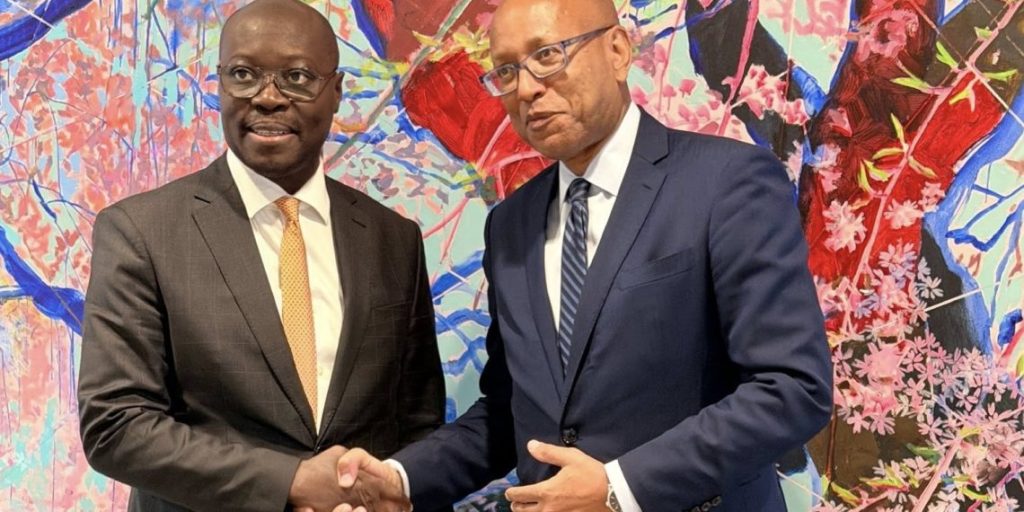Finance Minister Dr. Cassiel Ato Forson has revealed that the government is finalising a comprehensive Oil Palm Plantation Policy, set to feature prominently in the 2026 Budget, as part of a broader agenda to boost agriculture, industrialisation, and job creation.
The announcement follows discussions between Dr. Forson and Mr. Ethiopis Tafara, Regional Vice President for Africa at the International Finance Corporation (IFC), on enhancing collaboration to strengthen Ghana’s agricultural sector.
According to Dr. Forson, the new oil palm initiative will serve as a cornerstone of government’s strategy to transform agriculture into a major engine of employment and economic growth.
“The potential is enormous. With the right investment and partnerships, we believe Ghana can create over 500,000 jobs across the value chain — from cultivation and processing to manufacturing and exports — through the development of these strategic crops,” he stated in a Facebook post.
He emphasised that realising this vision will require long-term, sustainable financing, noting that the government is engaging with global development partners to mobilise the necessary capital.
“Such large-scale agricultural transformation requires patient capital. We are working closely with the World Bank, IFC, and other development partners to catalyse private sector participation and mobilise financing,” he said.
Dr. Forson explained that the initiative forms part of the government’s broader plan to diversify economic crops, strengthen food security, and build agriculture as the foundation for inclusive national growth.
“Ghana is ready to move. Together with our partners, we will harness the power of agriculture to deliver inclusive growth, create jobs, and place economic crops at the heart of our nation’s transformation agenda,” the Finance Minister affirmed.
The upcoming Oil Palm Plantation Policy will outline a structured framework for the development of the entire oil palm value chain — from large-scale cultivation to downstream processing — positioning it as a strategic driver of Ghana’s long-term industrial and economic development.

